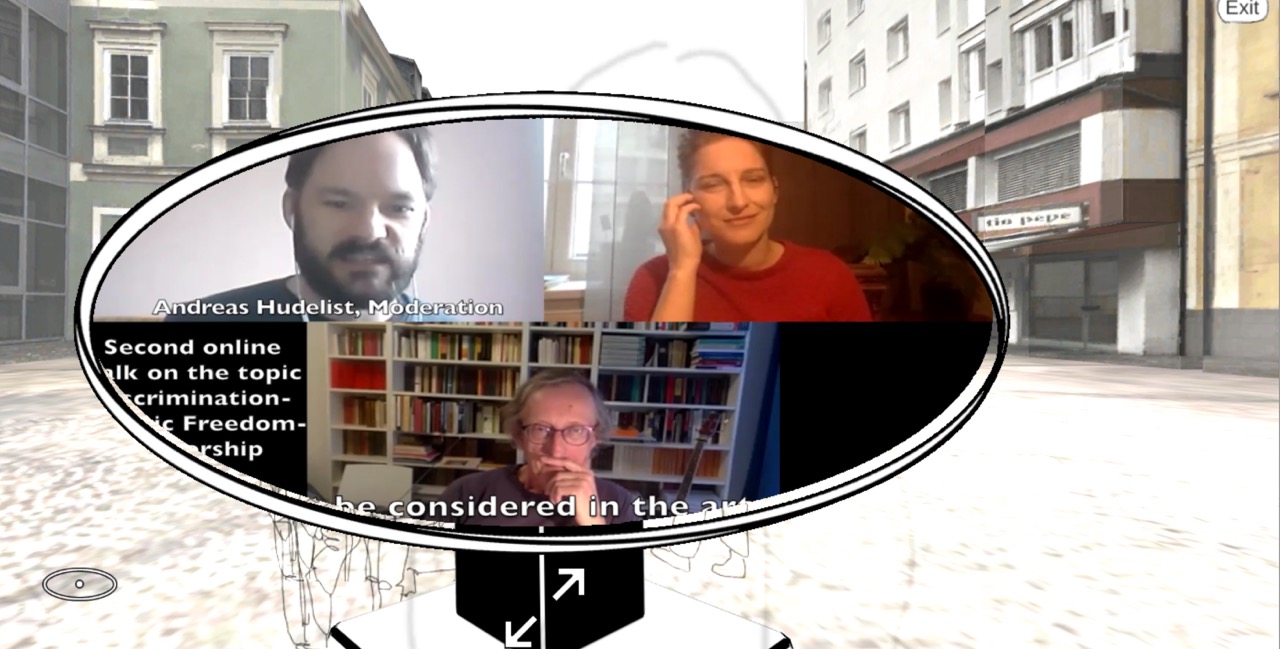- Title
- The virtual mapping of Mapping the Unseen
- Artist
- Katrin Ackerl Konstantin
- Date
- 2019-2020
- Country
- Austria
- Credits
- Concept and copyright: © Katrin Ackerl Konstantin. Programmed by Philipp Freyer - Luftensteiner, illustrated by Claudia Six, Globe video–insert by Wiesuell. Designed by Katrin Ackerl Konstantin.
- Curated by
- An expert team of the Austrian Federal Ministry for Arts, Culture, the Civil Service and Sport, the Austrian Commission for UNESCO and the Austrian Working Group for Cultural Diversity.
- Technical details
- open access virtual mapping website
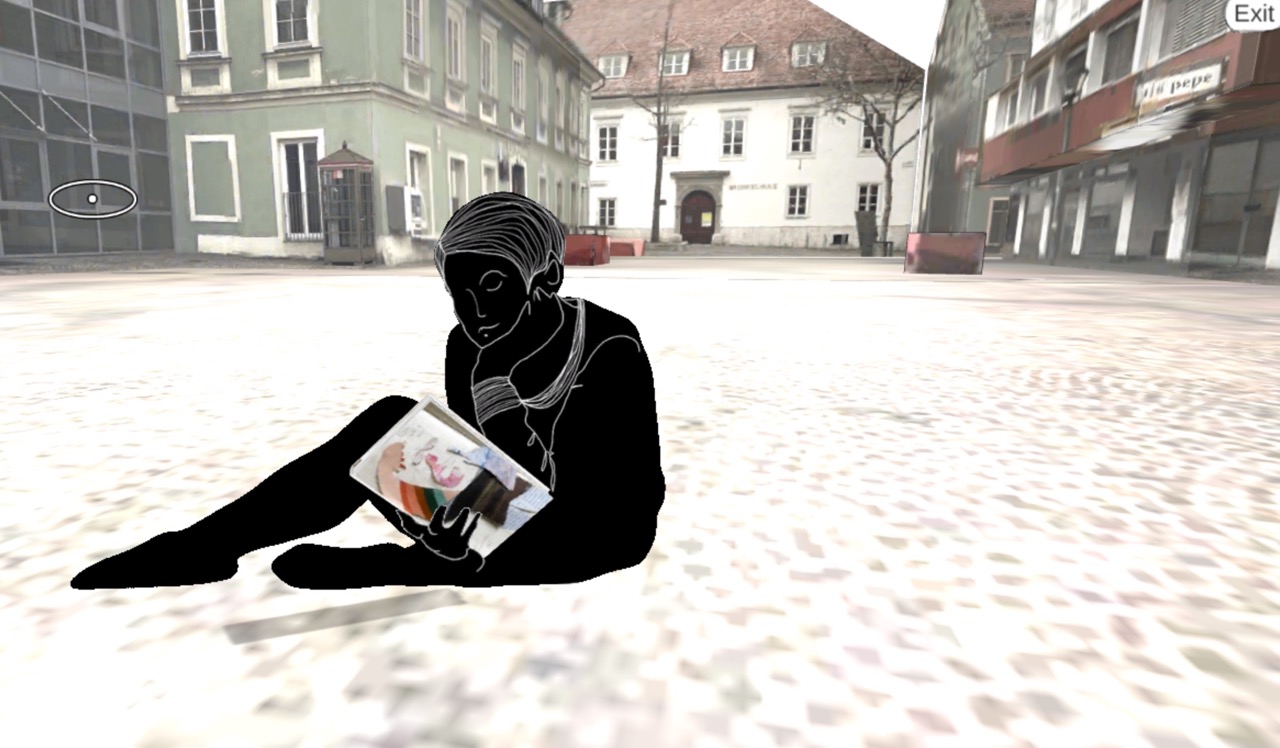
Artist(s) Statement
Art is a form of affirmation, but also of subversion. It is embedded in culture, and at the same time it can contradict it. But what if the social or political pressure becomes so strong that we can no longer show or present this space of contradiction and can no longer talk or write about it artistically? Artistic research is a method I chose to investigate this question more deeply. I designed a research project with the name “Mapping the Unseen” to negotiate issues of representation and cultural concepts which allow or hinder the visibility of social topics. In doing so the concept of the project was and is to make marginalised topics visible and discussable through an artistic process. Finally it invites people from all over the world to get in touch with „unseen“ topics, chosen by participating artist or art groups. Especially the third topic „Discrimination and artistic freedom“ selected by the Iranian partner artist, gave and give deep insights in the situation for Iranian artists in their region. But the project aim was also to question the relevance of the topic in Austria. Bringing the art works to Austria they were enriched with contributions from Austrian artists, researchers and NGOs, dealing with the same topic on a regional level. An intercultural dialogue was thereby fostered but also a transcultural discourse opened. Are there similarities? And if yes, to what extent? All research findings are explorable in the virtual mapping of Mapping the Unseen.
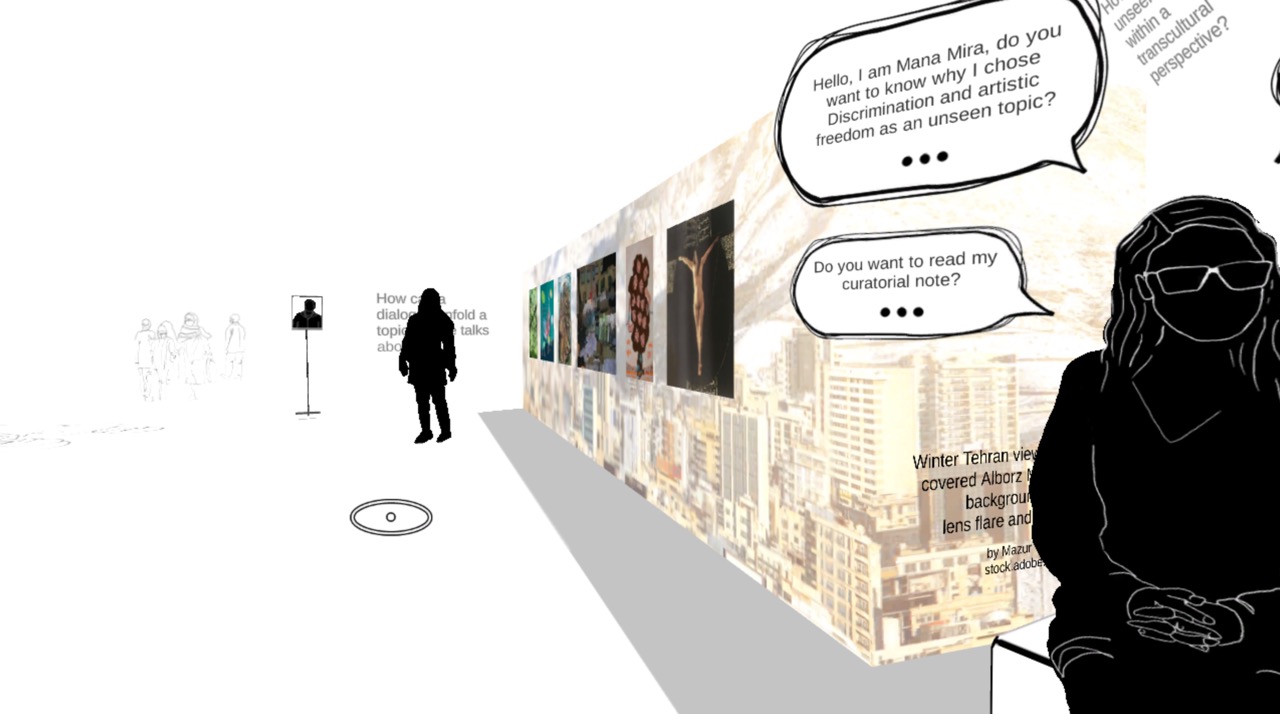
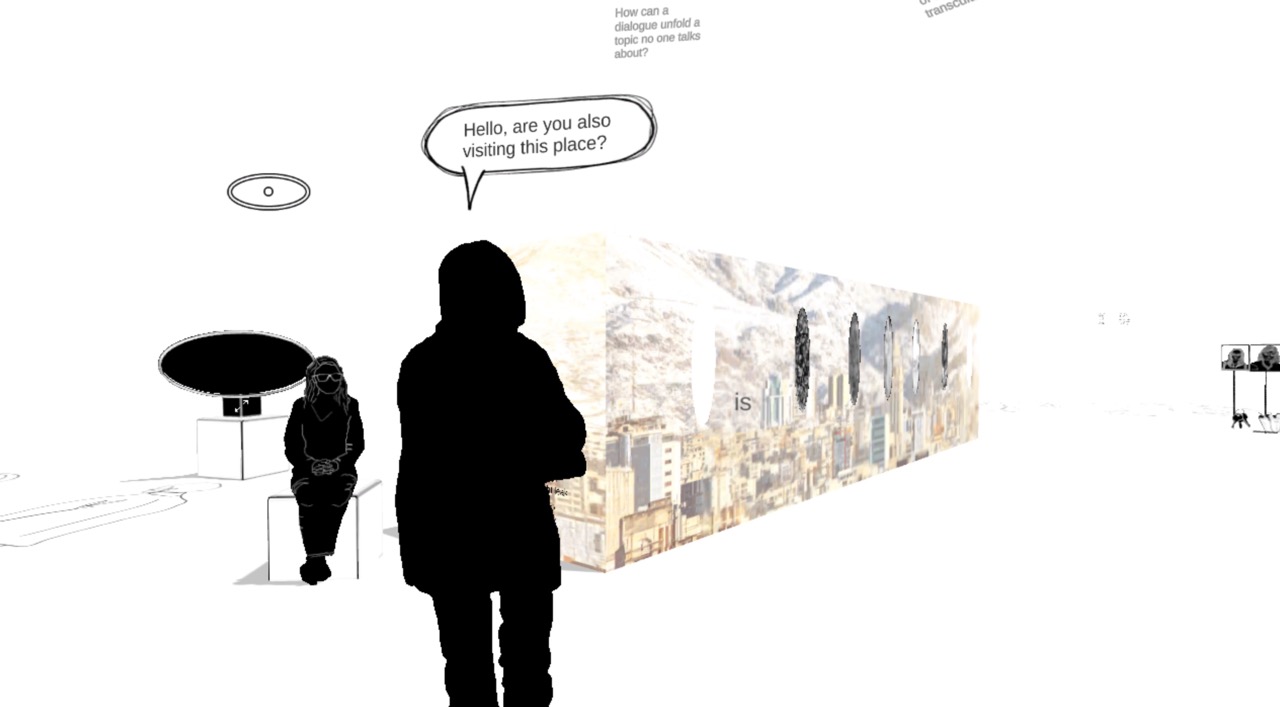
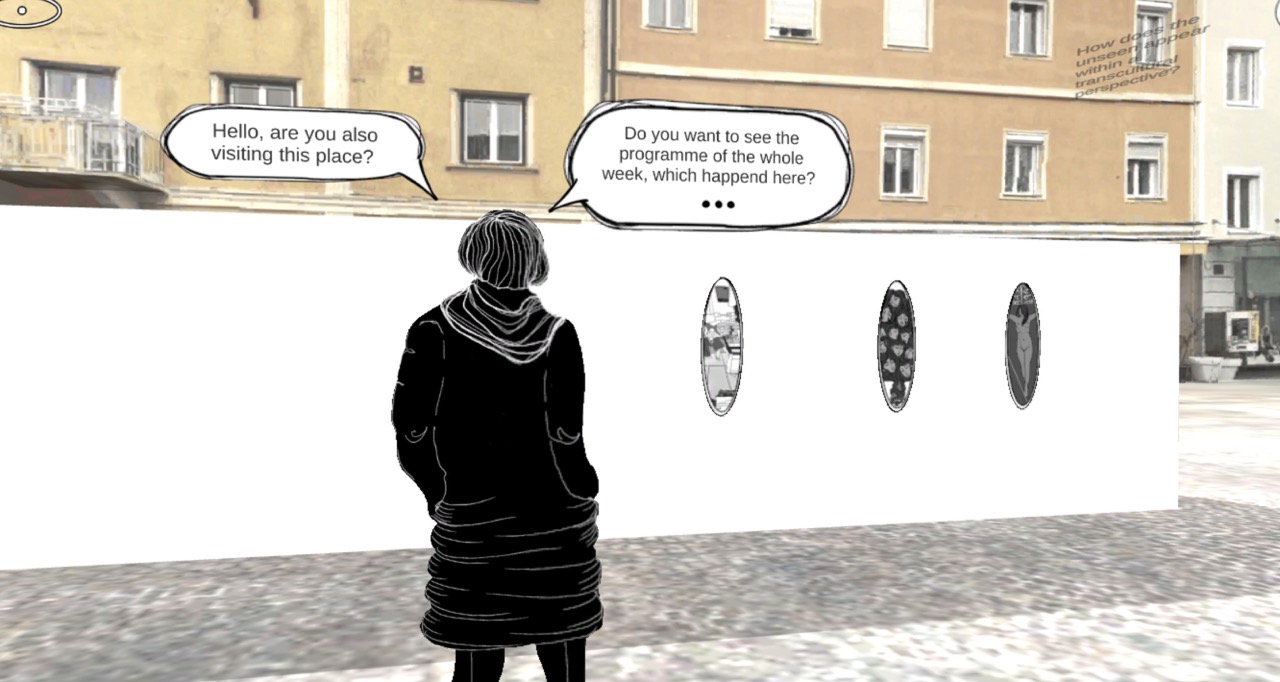
Description
The artistic research project Mapping the Unseen (2019-2021), which was funded by the FWF (AR 444-GBL), KWF and Land of Carinthia, consists of artistic interventions on unseen, hidden topics – topics that are not discussed in public by the mainstream society, because of their implicit social taboo potential. The project strives for a programmatic visual and discursive treatment of a chosen topic, which was identified and selected by participating art groups in Croatia, Iran, Bangladesh.
Central in the process was a person, who migrated because of personal, economic, or political reasons to Carinthia (Austria). They became so-called guides in the project and the connection to the artists/art groups in their former residence.
The interventions according to the chosen topics „LGBTIQ“ (chosen by the Croatian partner Vox Feminae), „The devoid of the subjecthood of the invisible ROHINGYA REFUGEES“ (chosen by the Bangladesh partner artist Ebadur Rahman) and the topic „DISCRIMINATION AND ARTISTIC FREEDOM“ (chosen by the Iranian partner artist Mana Mira) were shown in the respective cities for several days in empty disused spaces such as temporary vacant salesrooms or business offices. The intervention temporarily disturbed the use of the room: an unused room is being used. In doing so, the concept of “void” was contextualised dialectically in its heterotopian approach: an empty room is filled with a topic that is absent in social dialogue.
The resulting state of plenitude was playing field for artists, scientists, NGOs and the public, effectively a room for dialogue and discussion. Following this, parts of the project were invited to Austria, where the respective guide actually lived, to enable an intercultural dialogue. Central to this was the confrontation with the Austrian field of discourse on the topic, as local artists, NGO’s and researchers offered their contribution from their point of view.
The research was accompanied by transdisciplinary qualitative social research, biographical workshops, audience interviews, auto-ethnography, and depth hermeneutic analysis in the reflection phases. Finally, a web-based room was created. The virtual mapping is a cartography of all the chosen topics, assembled artworks, interviews, and academic publications, creating a new discourse leading to a transcultural space. Visitors are invited to explore the interactive virtual archive by means of animated 3D graphics and a blue cube simulation. It can be understood as a platform which is freely accessible from anywhere via the internet in such a way that the relational aspect of the project is also explorable here in an aesthetically perceptual way. The concept is therefore that through the moment of encounter something becomes visible in its phenomenological sense. Before that it stays in an invisible mode.
The interaction alone brings the project and its artefacts to the surface - how they are made visible and to what extent can be seen as an inherent part of the mapping.
It contains
- artworks by the participating artists Rina Barbarić, Matija Peček, Ebadur Rahman, Shalahuddin Helaly, Avi Shankar Ain, Ronni Ahmmed, Razib Datta, Mahia Rahman, Naw Naw, Tanvir Ahmed Chowdhury, Sheida, Samyi, Mana Mira, Babak, Betty, Farimah, Hosein, Mina, Marjan, Maryam, Nasim, Naghmeh, Rahil, Sahar, Sara, Bruno Strobl and Alex Samyi,
- audience interviews by Andreas Hudelist,
- publications by the research team Regina Klein, Rosalia Kopeinig, Martina Ukowitz and by the researchers Erol Yildiz and Mariel Rodriguez Rodriguez,
- Trailer of the interventions, auto-ethnographic sketchbooks, which can be understood as the base for the virtual mapping and film interviews by Katrin Ackerl Konstantin.
